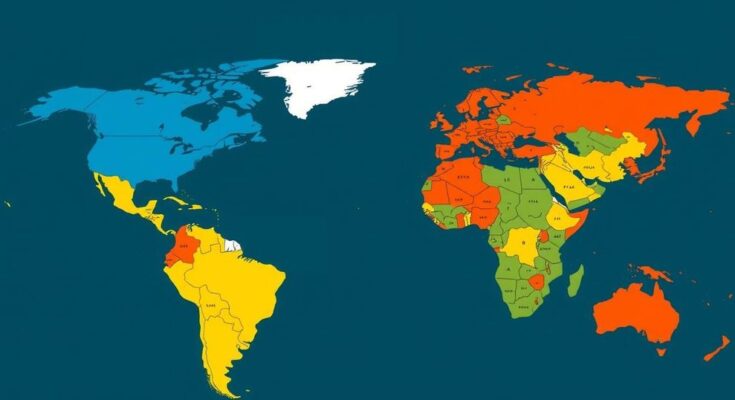Developing nations reacted strongly against a $300 billion climate finance deal agreed upon recently, deeming it insufficient in light of the escalating climate crisis. The agreement, reached after considerable negotiation, was criticized for failing to meet the financial needs of vulnerable nations, with many representatives calling for at least $500 billion. Although the new deal marks an increase from previous commitments, it has faced substantial backlash from those most affected by climate change.
In a recently concluded climate negotiation held in Azerbaijan, developing nations expressed their strong discontent with a new climate finance agreement that promised $300 billion a year from wealthier countries. Delegates from nearly 200 nations reached this contentious deal after intense discussions lasting over two weeks; however, representatives from poorer nations characterized the pledged amount as inadequate. India’s delegate, Chandni Raina, criticized the agreement as a mere ‘optical illusion’ failing to address the vast challenges presented by climate change. Critics, including Sierra Leone’s climate minister Jiwoh Abdulai and Marshall Islands envoy Tina Stege, echoed concerns regarding the lack of seriousness from developed countries. Ultimately, many developing countries had aimed for a minimum of $500 billion, highlighting the existing rift in climate finance negotiations. Despite the deal representing an increase from a previous commitment of $100 billion, it was deemed disappointing by those most affected by climate disasters.
The deal proposes to commit developed nations to provide at least $300 billion by 2035 for supporting developing nations in transitioning to greener economies and preparing for intensified climate-related disasters. This agreement emerged amidst an atmosphere of urgency, as extreme weather patterns continue to threaten vulnerable nations. UN officials acknowledged the imperfections of this agreement, stating that no participants emerged as satisfied, while calling it a foundation to build upon for future climate negotiations. Wealthy nations also faced considerable political and economic pressures that influenced their negotiating power, with individuals warning that substantial climate financing is crucial in combating the growing threat posed by climate change.
The recent climate negotiations highlighted the ongoing tension between developed and developing nations regarding financial support for climate initiatives. Historically, wealthier nations have been responsible for a significant share of global greenhouse gas emissions, leading to calls for them to provide more substantial financial assistance to support less developed countries that face the brunt of climate impacts. The increase from $100 billion to $300 billion, though a positive step, was seen by developing nations as insufficient given the escalating frequency and intensity of climate disasters.
In conclusion, the $300 billion climate finance deal reached at the negotiations has sparked significant disappointment among developing nations, who argue that the pledge is far too low to meet the pressing challenges of climate change. Concerns expressed by various representatives highlight the need for a more robust response from wealthier nations, particularly given their historical contribution to global emissions. As climate impacts become increasingly severe, the need for comprehensive financial commitments and equitable support mechanisms will remain paramount.
Original Source: www.fox28spokane.com




